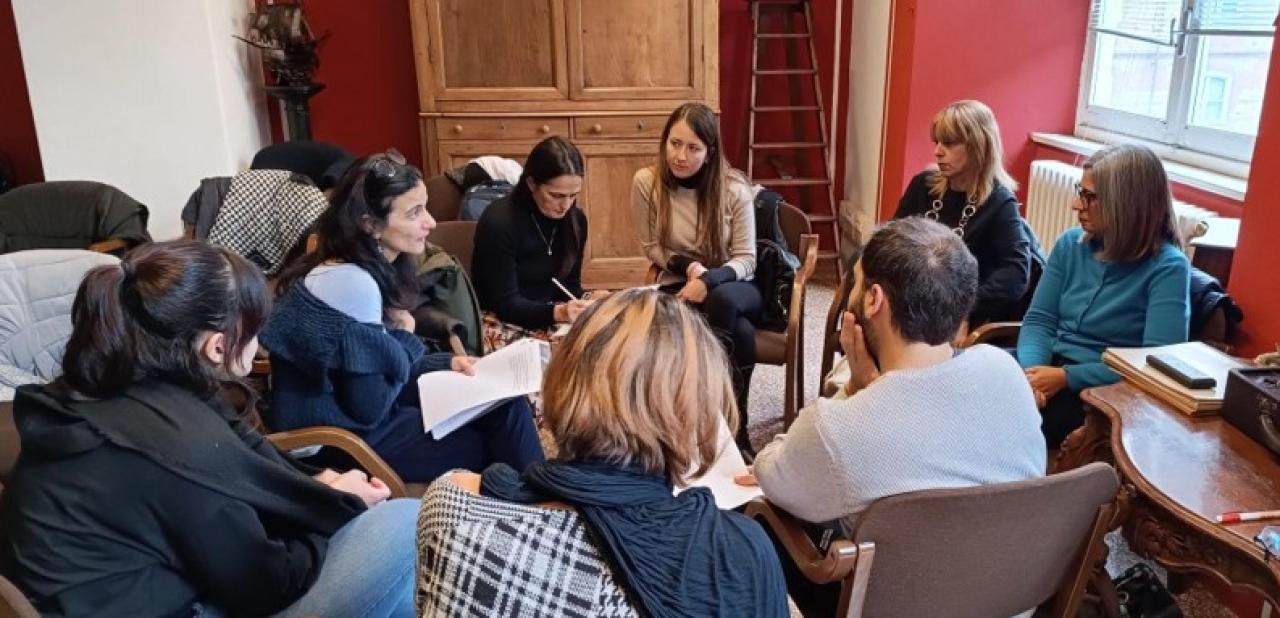The Test Case – Experimenting with the Pilot Project
Every investigation needs a test.
For the FEMACT-Cities project in Turin, that test was the Pilot Project, scheduled to run by March 2025.
The team turned to a new strategy: creating a Network of Equal Opportunities Ambassadors. These ambassadors—ordinary staff from different departments—would act as informants and connectors, spreading information, collecting feedback, and keeping the case alive across the administration.
The Steps of the Investigation
The pilot project unfolded like a series of investigative phases:
- Recruitment (January 2025): a call through the Urban Local Group to gather around 20 volunteers
- Role Definition (Early February): a half-day workshop where the ambassadors themselves outlined their tasks
- Training (Late February): six hours of tailored training, providing the tools needed for their mission
- Orientation Tour (March 12): a field trip to the Equal Opportunities Office, the Confidential Advisor’s office, the Anti-Violence Center, and Family and Relationship Centers—seeing the city’s frontline services in action
The Hypothesis on Trial
The central question: Could ambassadors become the missing link between Gender Equality Plan and the departments?
Investigators asked:
- Would the network foster collaboration across departments?
- Would ambassadors be effective in spreading gender equality objectives?
- What challenges and feedback would emerge?
The Evidence Collected
The results were clear. The ambassador network had a strong impact: participants reported deeper understanding of gender issues and stronger commitment to integrating them into daily work. Through co-creation, they brought insights from colleagues that sharpened the GEP’s focus and objectives.
The verdict
The pilot project didn’t just test an idea—it uncovered a working method. Feedback from ambassadors improved the training sessions, revealed department-specific challenges, and showed the importance of regular communication. The action plan became more adaptive, practical, and responsive.
The case file is now richer: ambassadors are no longer bystanders, they are active stakeholders, ensuring that Turin’s Gender Equality Plan is alive, inclusive, and rooted in the real needs of the administration.


